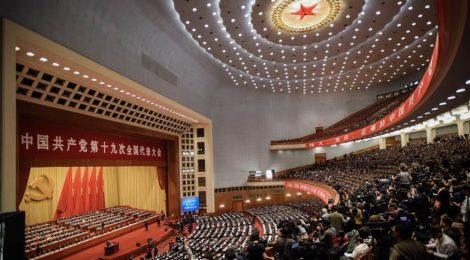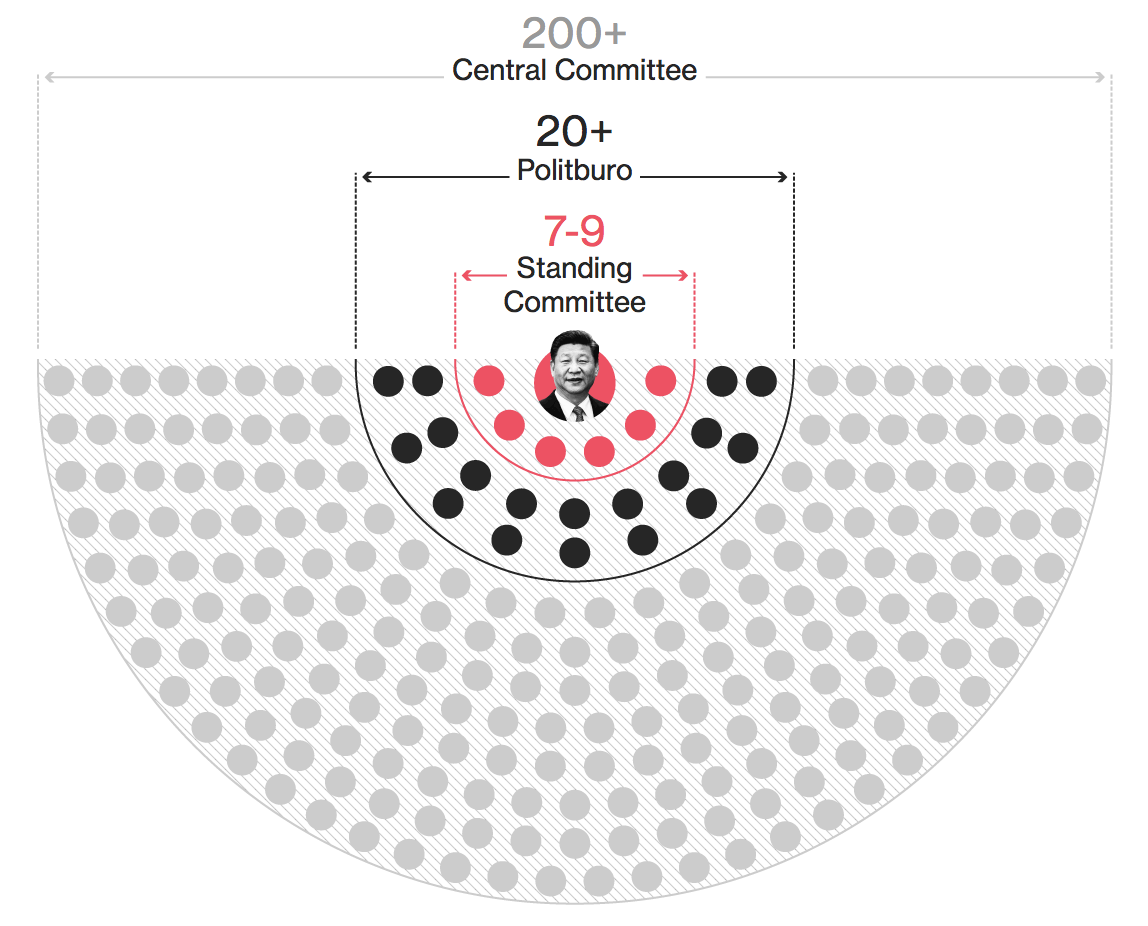
19th National Congress of the Communist Party of China has begun: What to expect?
As China’s top officials gathered in Beijing on October 18 for the 19th National Congress of the Communist Party of China, it is essential for every China watcher to closely follow the week-long meeting’s outcomes due to a far-reaching change in the make of the top leadership of the Chinese Communist Party (CCP). Albeit being an unpredictable process, patterns can be identified of those who will be rising up in the leadership and those who will fall in this twice-a-decade internal reshuffle. President Xi Jinping is expected to exert his influence in further strengthening his position as one of the most powerful leaders in modern Chinese history, and one of the most powerful man in the world.

The Congress – the 19th since the Party’s foundation in 1921 – is a high-profile summit of the Communist Party which sees 2,287 delegates gathering together to examine and approve new policies and elect the leadership of the country for the coming five years.
Many experts agree that this year’s Congress has the purpose to coronate Xi Jinping as supreme leader of China. Since taking power at the 18th Party Congress in November 2012, Xi has established himself as the ‘core’ of the Party, becoming one of China’s most influential leaders since Mao Zedong. Xi will supposedly use this Congress to further reinforce his position by surrounding himself with loyalists. Five of the seven spots of the Politburo Standing Committee, China’s top ruling council, are up for grabs, as are 11 of the wider Politburo’s 25 sets (currently 24, following the recent ousting of Sun Zhengcai), and almost half of the spots on the 205-member Central Committee. (For a more detailed analysis of China’s Leadership before the 19th Party Congress please click here).Within this larger group, the real power is held by the 40 members of its Standing Committee. These are usually retired presidents, premieres and politburo Standing Committee members, as well as the 24 incumbent Politburo members. They will have the final say on who makes the shortlist for the 200 Central Committee seats available for the next five years.
If this prediction is right, a question remains of what Xi Jinping will decide to do with that power. On the one hand, he might continue his hardline domestic policy and intensify its anti-corruption campaign, in the meanwhile bolstering his intentional posture, by hardening the country’s position in the South China Sea. On the other hand, he might reveal himself as a political and economic reformer. As illustrated by the Guardian, Xi will reverse two decades of governance in two highly significant ways. Firstly, Xi might not name a successor, indicating that he plans to remain for a third term. According to Party norms, China’s top two leaders are usually pointed five years before effectively taking power. Since 2007, when Xi emerged as China’s future president during the 17th Party congress, no successor has so far appeared.
Secondly, some believe Xi will take advantage of his strong position within the Congress to write a new Xi Jinping-related body of ideology. These new Xi’s political theories – so far called ‘Socialism with Chinese Characteristics for a New Era’ – will be included into the Party Constitution. The inclusion of a personal political philosophy in the charted is an honour given to several of Xi’s predecessors, but the question now is whether the inclusion will also carry his name. By adding his name to the addition, that would be the third “named” addition alongside Mao Zedong Thought and Deng Xiaoping Theory. If Mr. Xi’s name will be inscribed in the Party Constitution, this will further reinforce his hand, after the designation as “core leader” and “commander-in-chief” of China’s armed forces in 2016.

During the opening ceremony of the Congress, Xi outlined the Party’s priorities for the next five years. President Xi made clear that China will become a top ranked innovative nation by 2035 and one with pioneering global influence by 2050. The Party will further deepen its anti-corruption campaign and it will rule the country under rule of law and through public oversight. China’s national security will be boosted to firmly protect its sovereignty and interests, and any form of separatism will be resolutely prevented. Concerning foreign companies, Xi said that “China will open wider and wider” by giving equal treatment to all businesses. He also remarked that Chinese society will become moderately prosperous in the coming years, and that the Party is fighting against any form of poverty. One of the first measure to be introduced is aimed at increasing job opportunities for college graduates and migrant workers.
Observers worldwide will pay particular attention to the fate’s of Wang Qishan, the head of president Xi’s anti-corruption campaign and widely recognised as China’s second most powerful figure after the President. According to Communist Party norms, Mr Wang should step down due to age limit, as he is 69. However, Xi might make an exception and leave Mr Wang in charge of his anti-corruption campaign, and possibly become the new premier, replacing Li Keqiang. Also, if Xi breaks with convention by keeping Mr Wang in charge, this will support the idea that Xi is planning to serve a third term as Party General Secretary from 2022 to 2027, which has no precent in PRC history.
The Congress – according to Xinhua – also aims to encourage confidence in the path, system and culture of socialism with Chinese characteristics, to promote economic, political, cultural, social and ecological progress, as well as to advance coordinated development of the “Four Comprehensives.” The Four Comprehensives theory aims to accomplish a rather prosperous society, deepen reform, advance rule of law, and strengthen Party governance.




